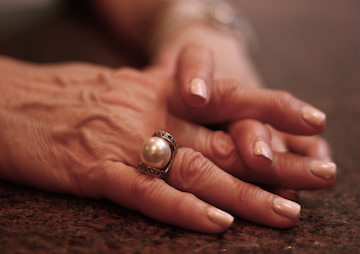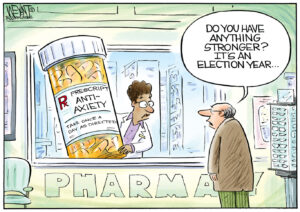The Wealthy, Too, Have Problems
Money is a divide across which many people feel comfortable hurling scorn. But the rich suffer depression and loneliness too -- and for very real reasons, say their psychologists. Jessie Jacobson / CC BY-SA 2.0
Jessie Jacobson / CC BY-SA 2.0
Money is a divide across which many people feel comfortable hurling scorn. But the rich suffer depression and loneliness too — and for very real reasons, say their psychologists.
“From the Bible to the Lannisters of Game of Thrones, it’s easy to argue that the rich have always been vilified, scorned and envied,” writes reporter Jana Kasperkevic at The Guardian. “But their counsellors argue things have only gotten worse since the financial crisis and the debate over income inequality that has been spurred on by movements like Occupy Wall Street and the Fight for $15 fair wage campaign.”
As it should. Sociologists and observant people going back ages have understood that the haves are just as susceptible to feelings of guilt and anxiety and the psychological contortions they may undertake to try to escape them as the have-nots are to a relentless sense of degradation.
“There is a fair amount of isolation if you are wealthy,” Clay Cockrell, a Wall Street worker turned therapist who counsels some of New York’s wealthiest, told Kasperkevic. “We are all taught not to talk about money. It’s not polite to talk about money. In itself, ironically, it’s harder to talk about having money than it is to talk about not having money. It’s much more socially acceptable to say: ‘I am broke. Things are hard.’ You can’t say: ‘I have a ton of money.’ You have to keep a lot of your life private except in small circles.”
As a result, the rich tend to hang out with others who have money, “not out of snobbery,” Kasperkevic writes, “but in order to be around those who understand them and their problems.” The particulars are different for those of us who are not well off. But we can all grasp the dynamic; everyone knows it’s more comfortable to be among those with whom we share key things in common than those whom social critics have long described as “others.”
If the rich dare to venture outside of their circle, they have to contend with the potentially inextinguishable doubt that their friends may be so only because they have money.
“Someone else who is also a billionaire – they don’t want anything from you!” explains Cockrell. “Never being able to trust your friendships with people of different means, I think that is difficult. … As the gap has widened, they [the rich] have become more and more isolated.”
“Wealth can be a barrier to connecting with other people,” adds a spouse of a tech entrepreneur. “Not feeling you should share some of the stressors in your life (‘Yeah, wouldn’t I like to have your problems’), awkwardness re: who should pay at a restaurant.”
Kasperkevic adds:
To avoid such awkwardness, some Americans have taken to keeping their wealth secret. “We talk about it as stealth wealth. There are a lot of people that are hiding their wealth because they are concerned about negative judgment,” said [wealth psychologist] Traeger-Muney. If wealthy Americans talk about the unique challenges that come with their wealth, people often dismiss their experience.
“People say: ‘Oh, poor you.’ There is not a lot of sympathy there,” she said. “[Wealth] is still one of our last taboos. Often, I use an analogy with my clients that coming out to people about their wealth is similar to coming out of the closet as gay. There’s a feeling of being exposed and dealing with judgment.”
“I don’t think it’s healthy to discount your problems,” adds Cockrell. “If you are part of the 1%, you still have problems and they are legitimate to you. Even when you say: ‘I don’t have to struggle for money’, there are other parts of your life. Money is not the only thing that defines you. … Your problems are legitimate.”
Kasperkevic again:
These are real fears faced by the richest of the rich. In 2007, the Gates Foundation teamed up with Boston College’s Center on Wealth and Philanthropy to document what it felt like to be in America’s 1%. For the next four years, researchers surveyed 165 of America’s richest households – 120 of those households have at least $25m in assets. The average net worth of those surveyed was $78m. The resulting study, The Joys and Dilemmas of Wealth, was 500 pages long and seemed to prove the old adage that money can’t buy happiness.
Read more here.
— Posted by Alexander Reed Kelly.
Your support matters…Independent journalism is under threat and overshadowed by heavily funded mainstream media.
You can help level the playing field. Become a member.
Your tax-deductible contribution keeps us digging beneath the headlines to give you thought-provoking, investigative reporting and analysis that unearths what's really happening- without compromise.
Give today to support our courageous, independent journalists.






You need to be a supporter to comment.
There are currently no responses to this article.
Be the first to respond.